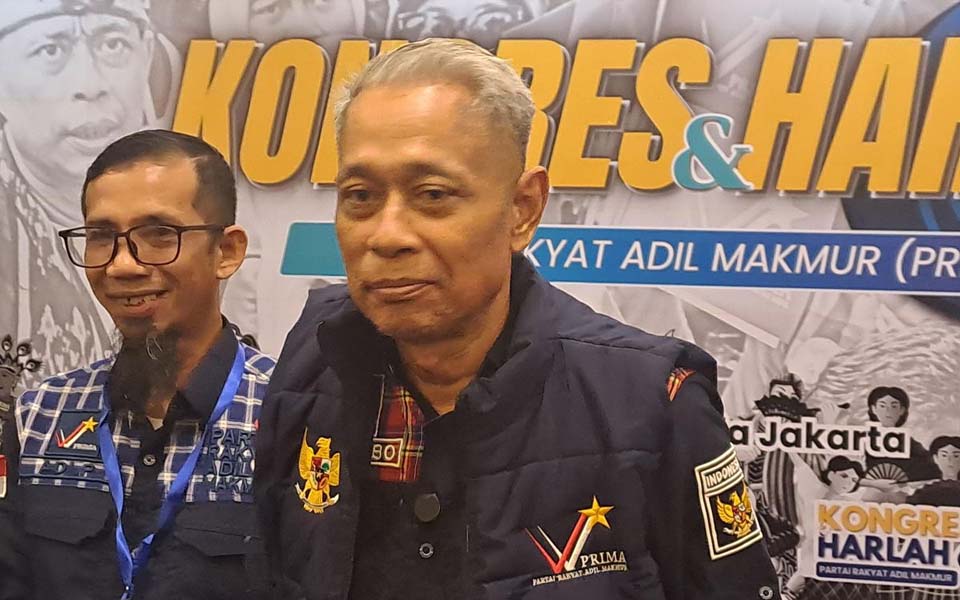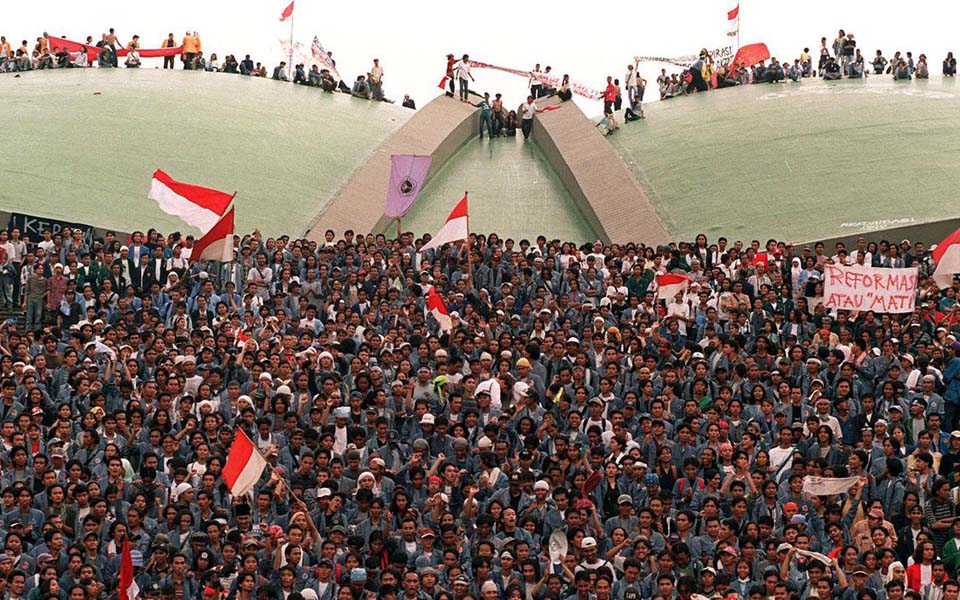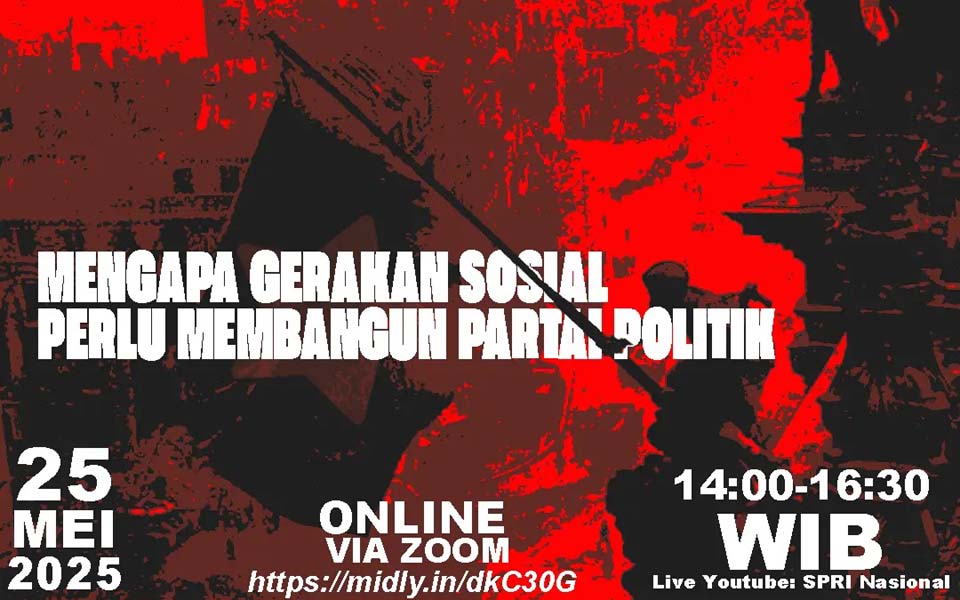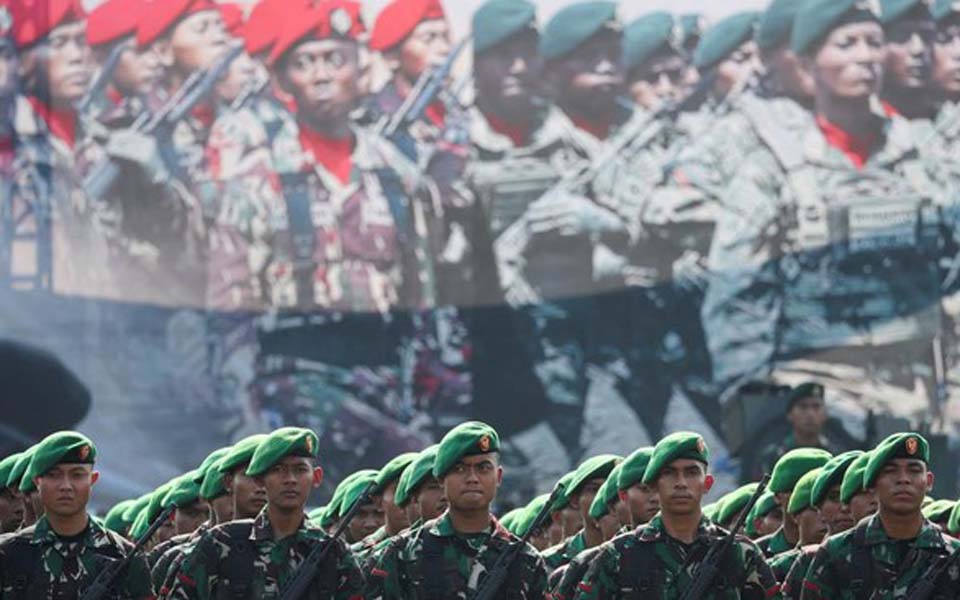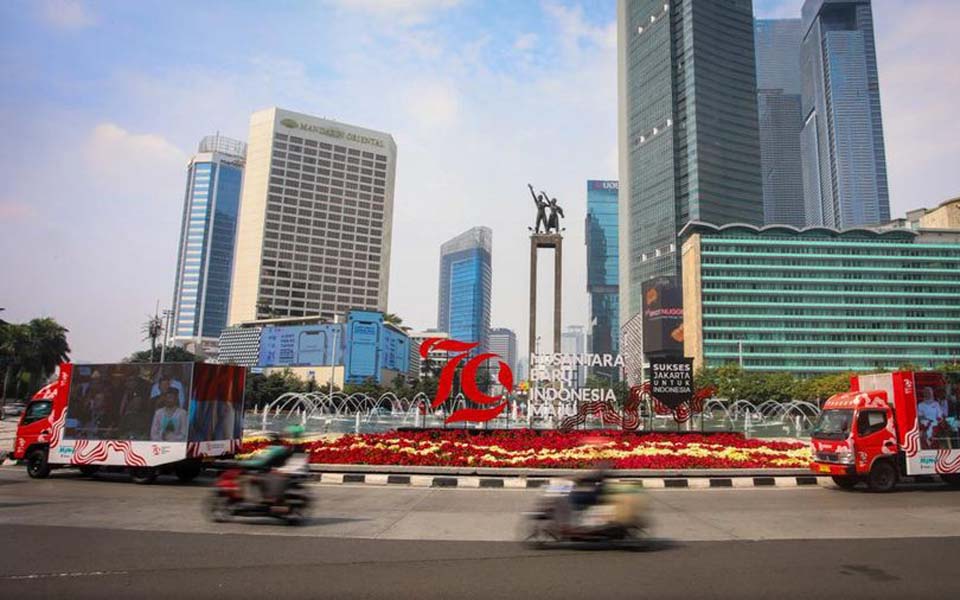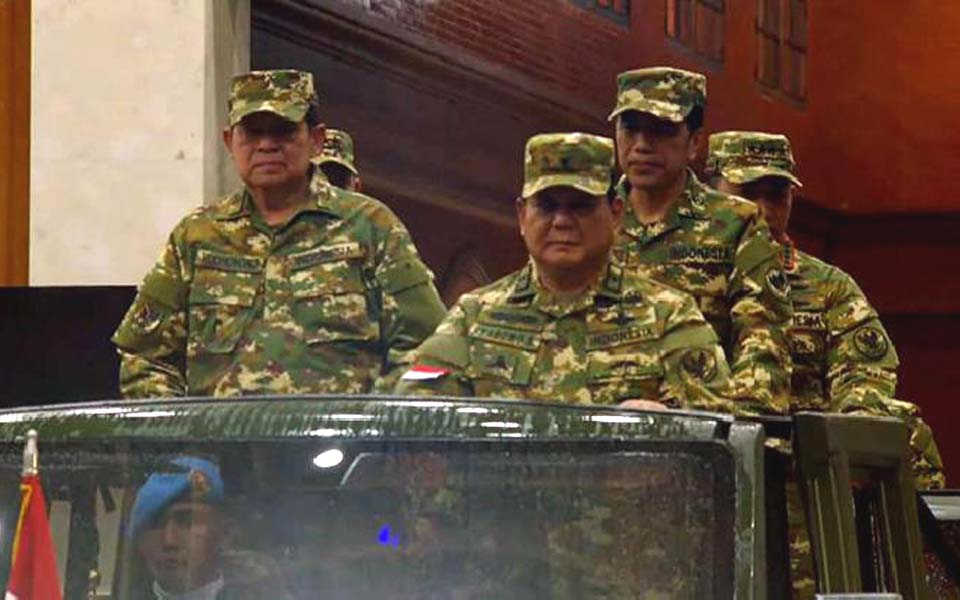BE Satrio, Litbang Kompas -- Democratisation in Indonesia appears to be taking a step back. After successfully holding peaceful general elections in 2004, these days political upheavals are centred on the political processes with the political parties. Unfortunately, the internal dynamics within the political parties tend to be overshadowed by power rather than a positive political process.
At first glance, it appears that regeneration has occurred in the leadership of a number of large political parties at recent party congresses. The reality is however that their political culture is very dependent on the charisma of party leaders and conservative tendencies heavily influence the election of party leaders. In the eyes of the public, the processes and dynamics that are occurring at party congresses at the moment are not seen as an example of a democratic model of life. In general terms however, the public on the other hand is starting to have a positive assessment of democratic life in Indonesia.
This was the conclusion drawn from the results of a Kompas survey of phone owners in 10 large cities. In general terms, the majority (60 per cent) of respondents in fact had a positive assessment of the process of democratisation in Indonesia at the moment compared to the period under the previous government. Only 15 per cent of respondents said the process of democratisation in Indonesia at the moment is poor and only 19 per cent said it was getting worse.
Nevertheless, within this a positive assessment which has resulted from the Indonesian nation moving forward with political reform and its success in holding direct elections in 2004, more than half (56 per cent) of respondents believe that the political parties have provided bad political examples at their congresses. Only one in three (32 per cent) respondents believe that the current political parties are providing a good political example to the country.
The issue that appears to have attracted most attention with regard to the political parties’ congresses so that in the eyes of the public they are seen as lacking in democracy, is the issue of the succession of party leaders. The same old figures surfaced, and if they did not interfere in the nomination of their favoured candidate, it was demonstrated by dominance of the charismatic influence of party figures. The problems which occurred within the Indonesian Democratic Party of Struggle (PDI-P), the National Awakening Party (PKB), the National Mandate Party (PAN) and the Star Reform Party (PBR) clearly showed signs of this.
The election of leaders by acclamation coloured the parties’ congresses and in the end, culminated in party splits as happened with PDI-P, PKB and PBR. Meanwhile the election process that took place within PAN showed the strength of the charisma of old leaders in influencing the election of a new leader.
At PAN’s congress, Soetrisno Bachir was considered on paper unlikely to gain PAN’s the top post because he was previously unknown in national politics. The fact was however, that in he succeeded in marginalising other candidates who already had a name for themselves. The election of the businessperson from the East Java city of Pekalongan as the general chairperson of PAN could not be separated from the influence of its former chairperson Amien Rais. Although the election was still conducted though a formal vote, the informal support given by Rais for Bachir obviously jacked up the number of votes and secured the leadership for him. A number of observers have said that Bachir’s election indicates that in the future the dynamics of PAN will continue to be a dominated by Rais.
PAN sympathisers, who were netted in the survey, appeared to be unsure about the nature of PAN’s new leadership. Only half (50 per cent) said they were optimistic about the new PAN leadership while the remainder (42 per cent) are pessimistic that PAN will do better under Bachir’s leadership.
But this is not just the case within in PAN. PKB and PDI-P are even more dependent on party figures. Within PKB, which has an extremely strong traditional links with the Islamic mass organisation Nahdlatul Ulama, the role of the Kiais (heads of traditional Islamic boarding schools) did indeed become central. Thus a number of political observers have said that the reelection of Gus Dur (former President Abdurrahman Wahid) as the head of the Advisory Council and Muhaimin Iskandar as PKB’s Tanfidz (chairperson) was a victory of the traditional forces over the those who wanted to democratise the party.
PKB’s voters themselves appear to have a negative view of the outcome of PKB’s congress that elected the two members from the political elite. At least two in three (67 per cent) of respondents in the survey who voted for PKB believe that PKB’s congress did not give a “fair” chance to all of the candidates and only accommodated particular individuals. In fact the Gus-Dur/Iskandar duet only generated an optimistic response from half (46 and 50 per cent) of PKB respondents about the future leadership of PKB and with regard to an increase in the vote for the PKB in the 2009 general elections.
If within PKB the figure of Gus Dur as a Kiai was central, within PDI-P the legitimacy of its leader is based on her hereditary background, that as the daughter of former President Sukarno, former President Megawati Sukarnoputri. It isn’t surprising that in its last congress the other name that emerged as a candidate for the leadership was also a close family member, Megawati’s younger brother Guruh Sukarnoputra.
In responding to the reelection of Megawati as the chairperson of the party symbolised by a bull in a round circle, only 32 per cent of PDI-P voters who were netted in the survey said that the PDI-P congress gave the same opportunities to other candidates. The dynamics of the congress prior to and following the reelection of Megawati by acclimation resulted in more than half of respondents who are PDI-P voters (56 per cent) believing that there was manipulation during the congress. Nevertheless, most members of the public in the survey who voted for PDI-P in the 2004 general elections are still optimistic about the future of the party under Megawati’s leadership and optimistic that the party’s vote could increase in the 2009 general elections.
The continuing role of old political party leaders no doubt, resulted in a majority (69 per cent) of respondents saying that there is still a dependency by Indonesian political parties on political figures and even that this is getting worse. Less than a third (28 per cent) believed that the present dependency on party figures has declined.
Among the party congresses which have taken place recently, there appears to be quite a high level appreciation for the former state ruling party Golkar. More than 60 per cent of respondents who voted for this party believe that the Golkar congress at the end of last year proceeded in a fair and democratic manner. Although there were still (37 per cent) Golkar respondents that believe the congress only accommodated particular candidates, the remainder (45 per cent) believes that all of the candidates had the same chance. Relatively speaking, a dependency on dominant figures did not feature within Golkar where Vice-president Jusuf Kalla was chosen as Golkar’s general chairperson after he defeated his competitor Golkar’s former chairperson Akbar Tandjung.
The tendency for parties to split, because of the way the election of their general chairpersons took place has not accommodated the rise of new independent leaders and has indeed become a serious problem for the future of these parties. The conflict which occurred between the Megawati camp and the PDI-P Reform Movement group, between the Gus Dur/Iskandar camp and the Alwi Shihab/Saifullah Yusuf camp and between the Zainuddin MZ camp and the Zaenal Ma’arif camp in PBR, clearly show a polarisation between conservative and modern tendencies.
[Translated by James Balowski.]






